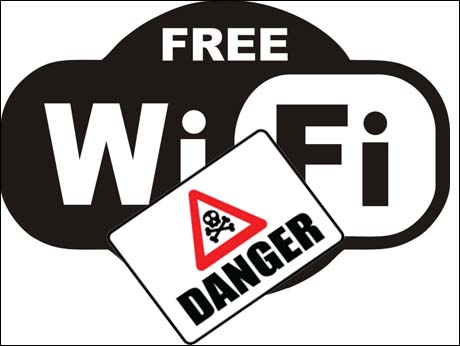
October 24, 2017: A recent study by Internet security specialist, McAfee, points to the looming dangers of public Wifi while on holiday. The study entitled "Digital Detox – Unwind, Relax and Unplug" finds that only 43% of survey respondents went on vacation in the last year with the intent to unplug their Internet connection.
More than half of respondents (52%) indicated that they spend at least an hour a day on vacation using their connected devices.Thirty-eight percent could not last a day without checking either work or personal email.Thirty-seven percent could not last a day without checking social media.More than half (54%) could not last a day without texting. The report cautions that before consumers head out to enjoy their holidays, they need to understand the risks and threats associated with remaining internet-connected when travelling and how to avoid them.( read our full report on this study here ).
The biggest risk for travellers comes from public WiFi -- in hotel rooms and lobbies, airport departure and arrival halls and places like coffee shops ans restaurants that provide a password for free WiFi to their customers. There was a chilling report in a Dutch magazine recently ( reported at Medium.com) which said: "We took a hacker to a café and, in 20 minutes, he knew where everyone else was born, what schools they attended, and the last five things they googled." The hacker carried around a small black device, slightly larger than a pack of cigarettes, with an antenna on it. Yet that is all he needed to hack into every single phone or laptop that was being used in the cafe.
Norton, the popular brand for antivirus and Net security products says in a posting on the Hidden Dangers of Public WiFi:
Lesson one for travellers: Don’t assume that a public Wi-Fi network is safe and secure simply because it has a password. The same passwords are shared, so anyone nearby can easily hop onto the network and see what you’re doing.
Lesson Two: If your laptop open in a coffee shop, hotel lobby or airport, someone may be secretly observing. Take a few moments to make sure no “shoulder surfers” are watching what you type. To help combat this, you might want to consider purchasing a privacy screen to take along with you, or at least sit with your laptop screen turned away from everyone else.
Lesson three: Watch what sites you visit. Hold off on visiting any sites that require you to log in with a username and password, like your bank or other financial institutions, social networking sites or webmail. Why offer unscrupulous types information that could haunt you later? Play it safe. Save visiting such sites until you’re on a secure, private network.
All Security specialists agree on one thing: Use a VPN (virtual private network). VPNs create a network-within-a-network solution to keep everything you do on public Wi-Fi private. Even on a password-protected network, people can still intercept the signal. VPNs can help make you invisible, allowing you to check sites without worry. VPN acts as a secure tunnel for your device. Instead of relaying all of your traffic to an untrusted router on public WiFi, your device connects to a trusted VPN provider.
VPNs need not cost money. Check if your browser allows you to set up a VPN. We know of at least one browser that does -- Opera. Make it a habit to switch on the VPN function before you use a public WiFi network.
The Harvard Business Review suggests that the best solution is to buy an unlimited data plan for your device and stop using public Wi-Fi altogether.